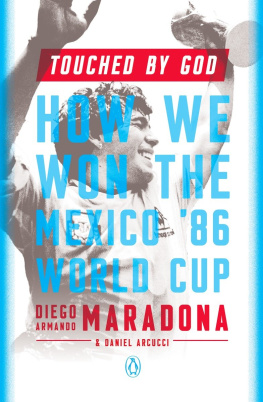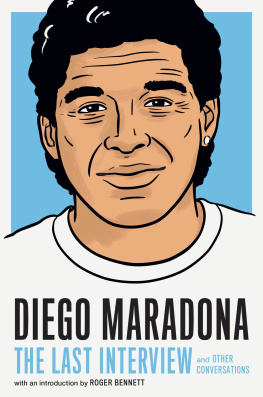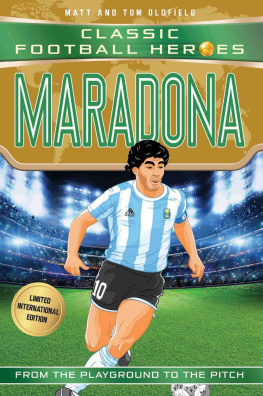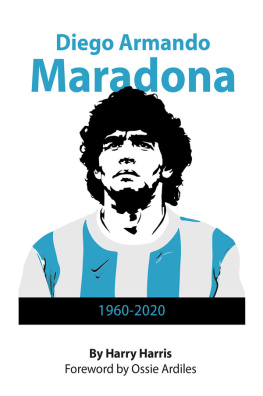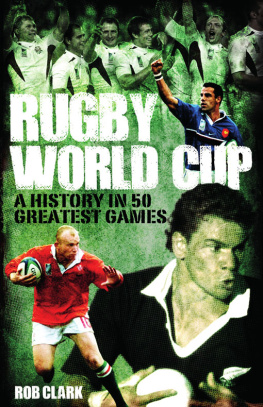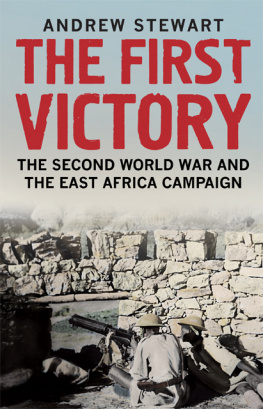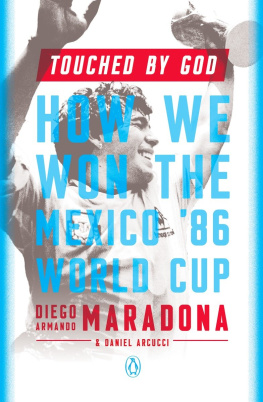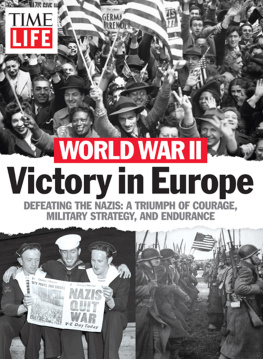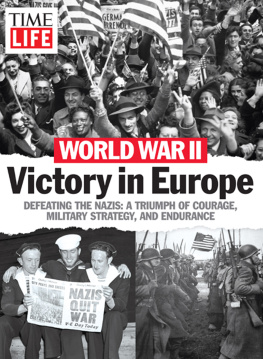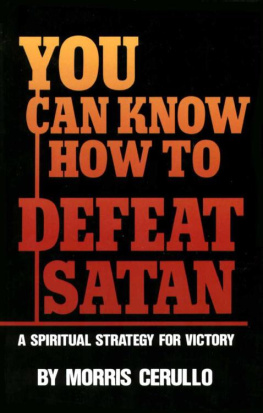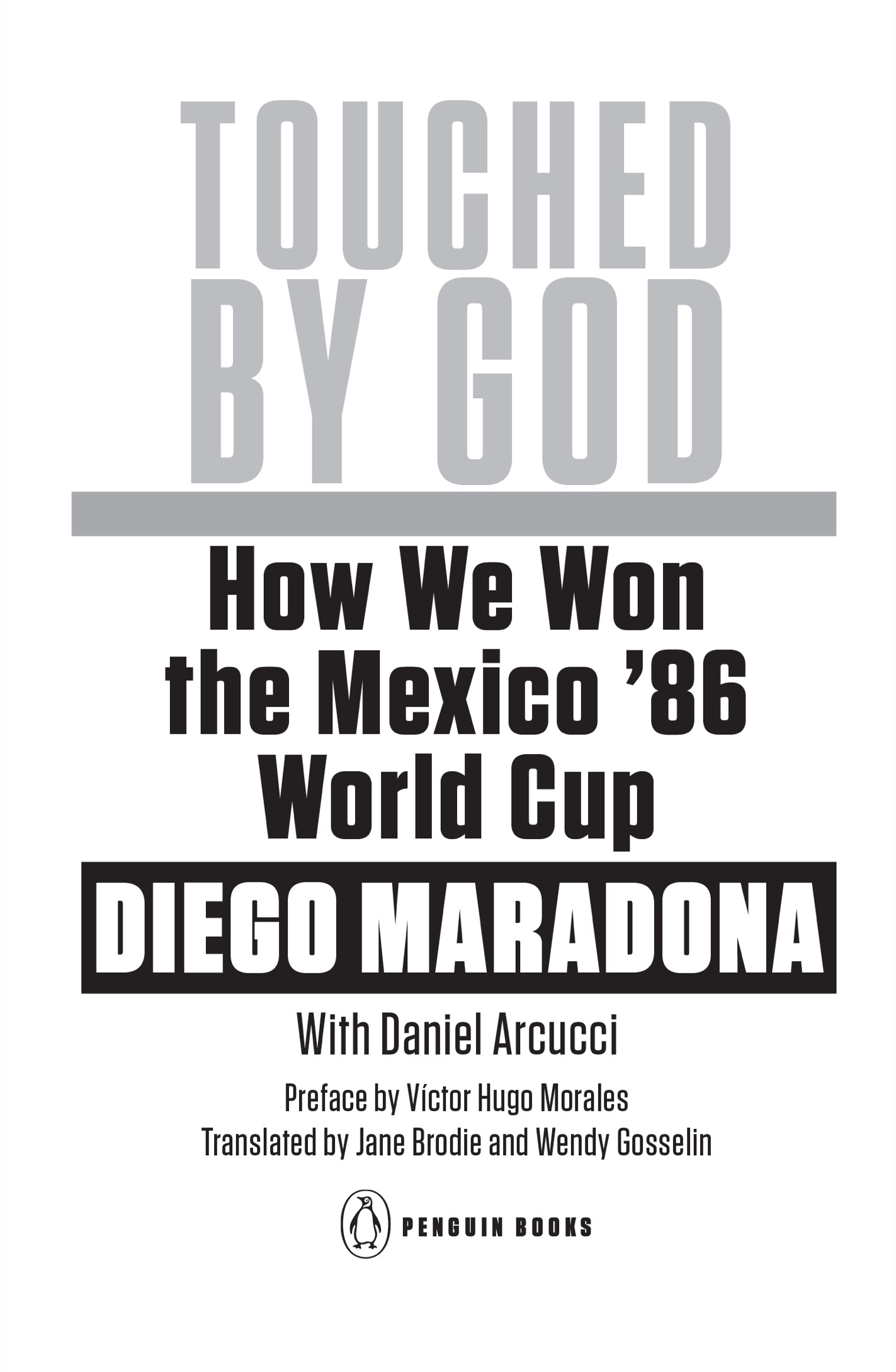PENGUIN BOOKS
TOUCHED BY GOD
Diego Maradona was born in 1961 in Villa Fiorito, Buenos Aires, and is widely regarded as one of the greatest soccer players in history. He played on Argentinas national team in four World Cups, as well as for Argentinos Juniors, Boca, Barcelona, Napoli, Sevilla, and Newells Old Boys. Maradona lives in Dubai, where he manages Al Wasl Football Club.
Daniel Arcucci is a journalist who has covered soccer in Argentina for more than three decades. He first met Diego Maradona in 1985 and has interviewed him more than 150 times since, including when he covered the 1986 World Cup.
PENGUIN BOOKS
An imprint of Penguin Random House LLC
375 Hudson Street
New York, New York 10014
penguin.com
Copyright 2016 by Diego Armando Maradona
Copyright 2016 by Penguin Random House Group Editorial S.A.
Translation copyright 2017 by Penguin Random House LLC
Penguin supports copyright. Copyright fuels creativity, encourages diverse voices, promotes free speech, and creates a vibrant culture. Thank you for buying an authorized edition of this book and for complying with copyright laws by not reproducing, scanning, or distributing any part of it in any form without permission. You are supporting writers and allowing Penguin to continue to publish books for every reader.
Originally published in Spanish under the title Mexico 86: Asi ganamos la copa by Sudamericana, an imprint of Penguin Random House Group Editorial S.A., Buenos Aires.
Library of Congress Cataloging-in-Publication Data
Names: Maradona, Diego, 1960 author.
Title: Touched by God : how we won the Mexico 86 World Cup / Diego Armando Maradona ; with Daniel Arcucci ; foreword by Victor Hugo Morales ; translated by Jane Brodie and Wendy Gosselin.
Other titles: Mexico 86. English
Description: New York, New York : Penguin Books, 2017. | Translation of: Mexico 86 : asi ganamos la Copa.
Identifiers: LCCN 2017015595 (print) | ISBN 9780143129769 | LCCN 2017016041 (ebook) | ISBN 9781101993408
Subjects: LCSH: World Cup (Soccer) (1986 : Mexico) | Seleccion Argentina (Soccer team) | Maradona, Diego, 1960 | Soccer PlayersArgentinaBiography.
Classification: LCC GV943.5 1986 (ebook) | LCC GV943.5 1986 .M37 2017 (print) | DDC 796.334/6680982dc23
LC record available at https://lccn.loc.gov/2017015595
Penguin is committed to publishing works of quality and integrity. In that spirit, we are proud to offer this book to our readers; however, the story, the experiences, and the words are the authors alone.
Cover design: Matt Vee
Cover photograph: Getty Images
Version_1
Contents
Preface
I Love the Way Diego Describes That Goal
There was a spark in the air as Maradona prepared to redeem his country and take revenge against England. Watching this space alien in an Argentine jersey do the most astounding thing ever done in the history of soccer was like watching a flying saucer burn its way across the sky.
From up near the top of the stadium, you could see some sort of trench, a ditch, and a shining light ripping through, racing like a comet. Far below in the shadows, in the bowl-shaped Azteca stadium, something happenedMaradona did something that usually occurs only up in the heavens. Like a shooting star tearing a hole in the dark sky, Diego rushed by, as proud as a flag bearer leading his army into a critical battle. Then he darted past the English flanks, leaping over legs as he attempted the impossible. And, like a mountain climber, he planted his flag at the peak.
Jorge Valdano, who was right behind him that day, once said that Diego apologized to him for not passing him the ball. Diego said he just didnt get the chance. Valdano and the other players wondered how he could possibly have been thinking about that during his unforgettable run.
From one of the press boxes in the stadiumI was working as a sports commentatorI shouted that Diego had just made the greatest play of all time, and then I added a phrase that would be repeated endlessly, calling Diego the cosmic kite. I went on to work in sports journalism for some thirty years, but that broadcast is what everyone remembers: my entire career has been wrapped up in Diegos still unsurpassed play.
How many plays are possible in the heat of the match? What did Diego, an artist at the game, see on the field? He made a series of intentional mistakes from the time he got the ball until he reached the goalpost. Sandwiched between hundreds of other commentators, I was forced to abandon all the conventions of my trade by the visions of everything he was doing and everything he might have done.
Genius, genius, genius, was the modest word I repeated as the fearless player approached the summit, plowing through the furrow he was making on the turf. At what point did Maradona decide to go for the goal? As he moved forward, he kept his eye on the ball, but how many legs, how many square feet of land came into his peripheral vision? He was able to connect with the ball, to stop, to start up again at an angle, to finish up the play from afar. In a thousand different ways, this play was one in a billion.
Courage, intuition, and a god behind God, as Jorge Luis Borges would have said, made this a unique play for all times. By the time the English teams sense of powerlessness and disbelief had passed, Maradona had placed the ball deep inside the net.
I want to cry, is what I said, my hand curled into a fist, my body wrapped up in cables, leaning over my desk as Maradona ran off the field to celebrate his feat.
His entire body was shaking as he let out a cry of joy, and his mind went blank, as if a cloud had exploded behind his closed eyes. Its wasnt just any goal. Emotions built up over several years poured into the sieve of reason. It was Diegos feat, the triumph of the one so beloved to soccer fans. It meant that Argentina had made it to the World Cup semifinals.
It was a goal against the English, and hundreds of young men who should have been shouting in joy were absent: their voices had been silenced four years earlier in the cold of the Malvinas (the Falkland Islands). It took place at a rivals stadium. And it was the most beautiful and the boldest, the most courageous and inventive play that soccer had ever produced.
Thirty years later, the man himself cannot erase its mark. He jumps farther, runs faster, has more endurance than the rest: the universe itself may expand into infinity, but it cant outrun Maradona. Its no small feat. You have to take control of the ball on your side of the field, dodge any rival who gets in your way, face the goalie, and then knock the ball into the net. And it has to be at the World Cup.
And, speaking of Borges, in the short story The Library of Babel he imagines every possible book, just as that day Diego wrote everything that could ever be written about soccer, the sport he took to a whole new level.
In a single play, he wrote the book on intuition, on boldness and skill, the book on courage, strength, cunning, genius, memory, and everything else found in the soccer library.
When, at the beginning of the match, the players formed two lines, Diego egged on his fellow teammates. They remember how their captain told them exactly what their rivals would do that day. The words he used were anything but formal. They came from the book of the potrero, with all the challenges it holds. With the insolence of a man who doesnt seem at all worried about the rules of the game even though the survival of the entire group is at stake, he encouraged them to be intrepid, to leap into the void, even if that meant falling to their death. He couldnt have known at that point that the same mixture of mischief and art he used in his words to his teammates would be what he deployed in the decisive play of the most exciting match in Argentine history. If he had said, Well beat them, no matter what it takes, then the goal he knocked in with his hand would have made sense. If he had said something about showing what Argentina knew about soccer, there would not have been any need for further explanation: the goal against the English would have sufficed. His fellow players cannot remember a single word he said. Or maybe they are just too proud. But they all say that Diego talked their ears off.

